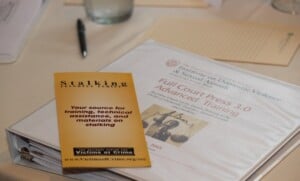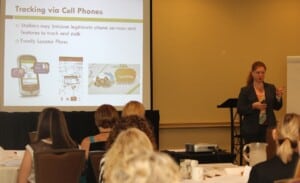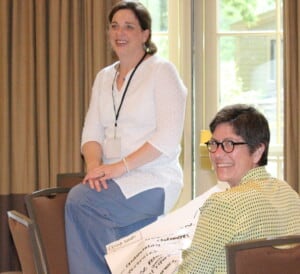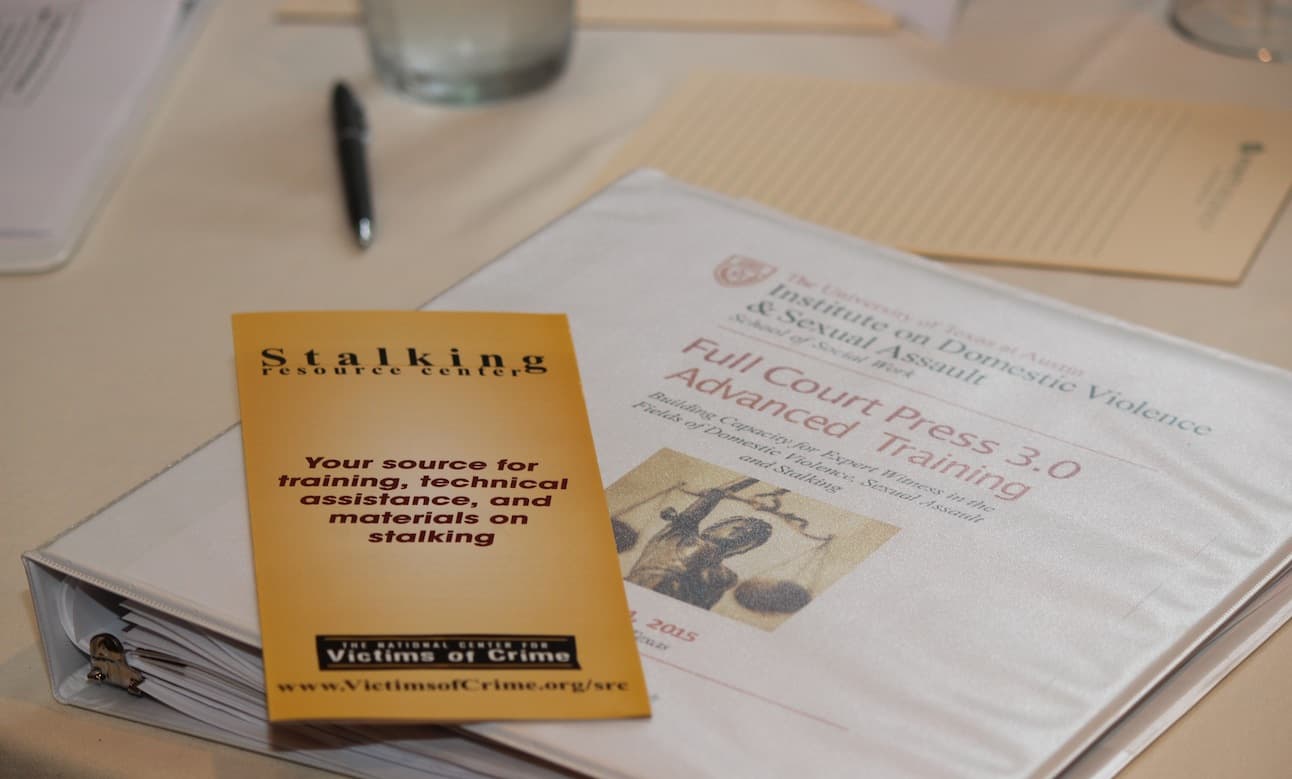The first time Margaret Bassett testified as an expert witness in a domestic violence case she was not sure what to expect. It was a criminal case in which the victim was also the family’s primary breadwinner. The defense attorney who cross-examined Bassett was arguing that the victim could have left the relationship if she had wanted to, given the fact that she was financially independent.
 “When it was the prosecutor’s turn, he asked me a very good question that allowed me explain the different levels of entrapment that people in domestic violence situations can experience, no matter how much money they make. As I was elaborating on this, I saw the prosecutor sitting back and looking over at the defense table with a smile, and I knew we were going to win,” Bassett remembered.
“When it was the prosecutor’s turn, he asked me a very good question that allowed me explain the different levels of entrapment that people in domestic violence situations can experience, no matter how much money they make. As I was elaborating on this, I saw the prosecutor sitting back and looking over at the defense table with a smile, and I knew we were going to win,” Bassett remembered.
Basset is now director of the Expert Witness Program at the School of Social Work’s Institute on Domestic Violence & Sexual Assault (IDVSA). Through this program, IDVSA offers Texas-wide trainings in domestic violence, sexual assault and stalking to attorneys, advocates, and clinicians who work on interpersonal violence cases. Once every two years, IDVSA also organizes a national conference on domestic violence.
“The goal of our program is that attorneys and potential experts such as social workers, counselors, and advocates work together to understand how to move forward in cases of interpersonal violence that include difficult elements,” Bassett explained. “For instance, in my first case, an expert witness was needed to explain victim behavior, because the general population might not understand or might have misconceptions about why victims respond the way they respond.”
IDVSA held its inaugural expert witness training in August of 2004.
“It seemed that I was getting between one and four requests a month from lawyers who wanted me to testify as an expert witness in domestic violence cases. I saw that there was a real need to build capacity, and I initiated the training responding to this demand,” explained Noël Busch-Armendariz, IDVSA director and associate dean for research at the School of Social Work. “Our main objective with this program is to influence and improve the criminal justice system’s response to domestic violence, sexual assault and stalking by increasing the skills of individual practitioners such as attorneys and experts.”
Beginning in 2005, IDVSA partnered with colleagues from the UT Austin School of Law and the National Center on Domestic and Sexual Violence to co-host the annual Texas-wide training known as Full Court Press.

“Participants not only learn up-to-date content but also practice with each other and get feedback from faculty. Testifying is like public speaking, with the added difficulty that you tell your story by responding to questions, and that you are exposed to somebody that will try to undermine what you say. You have to build up the skill and ability to manage that in a professional way, and to showcase your expertise effectively,” Bassett said.
“Throughout these years our training has become much more comprehensive and sophisticated,” Busch-Armendariz added. “This means that today our Full Court Press is over 23 hours, while the first training was only six hours.”
For the firs time this past May, IDVSA offered an advanced, Texas-wide Full Court Press targeting attorneys and advocates who had participated in earlier trainings.
During the five-day event, participants heard from experts on topics ranging from the impact of trauma on memory and behavior to the latest mobile phone technologies that stalkers could use, including family locator plans and GPS capabilities to know their victims’ whereabouts, and call and text spoofing to hide their identity.
“What we have learned this morning about the use of technology was very useful,” said Michael De León, a prosecutor in the San Antonio attorney’s office “Technology changes very quickly, especially with all the new apps, and we need to keep updated. I’ve used what I learned in my first Full Court Press a lot, to train law enforcement officers and also to prosecute these types of cases.”
The updates about technology also resonated with attendee Kathy Reid, from a domestic violence shelter in Waco.

“Although technology can be our best friend, it can also be used against us, and many people are unaware of this. Just last week, a woman who came to the shelter shared with us that the mechanic had discovered a phone that had been strapped into her car for tracking purposes,” Reid said.
While learning about the latest research and content is key for participants, the heart of the training is in the hands-on sessions, where participants work in groups to tackle cases that include difficult elements. For instance, in the advanced training this past May, one of the hands-on sessions focused on an intimate partner violence and stalking case involving a lesbian couple, where both women were professionals, and both offender and victim engaged in behaviors that made the victim look careless, dishonest, and unfounded in her claims.
“These trainings have been incredibly helpful when I had to testify,” said attendee Lauren Gaspar, who has a counseling practice. “It is nerve wrecking to be at the stand as it is, and in addition you need to be able to recall the right information at the right time. These sessions are invaluable to learn how to prepare, and what are good responses versus responses that might get you stuck.”
“I know that I have lots of information, but it’s essential to learn how to condense it, how to explain very hard concepts in a court situation, and how to make it short, sweet, and convincing for the jury,” said Alison Porto, who works with a domestic violence shelter in Brazos County. “I can tell that just by practicing a few times this week I’m getting more comfortable.”
“I could not have testified without Full Court Press,” Reid concluded “I don’t have a law or counseling degree, but these trainings have taught me to claim my experience working with victims of domestic violence as the source of my expertise, and to be confident enough to take the witness stand.”
Posted June 4, 2015. By Andrea Campetella.


